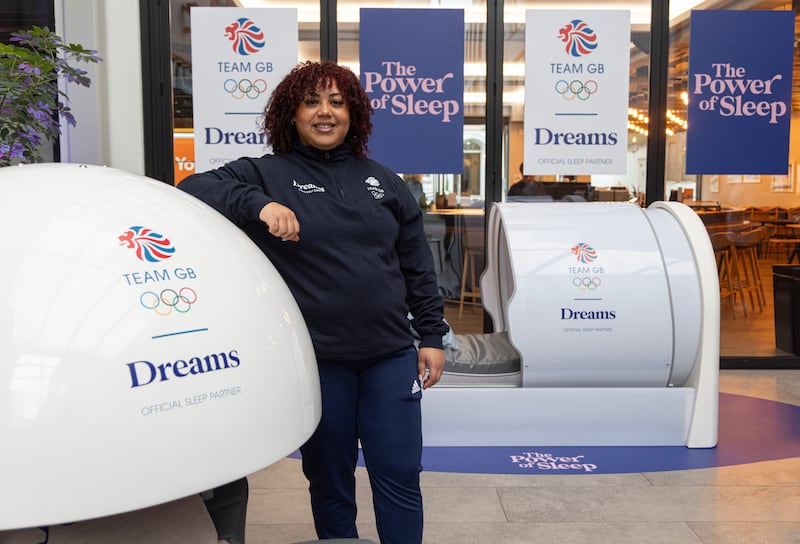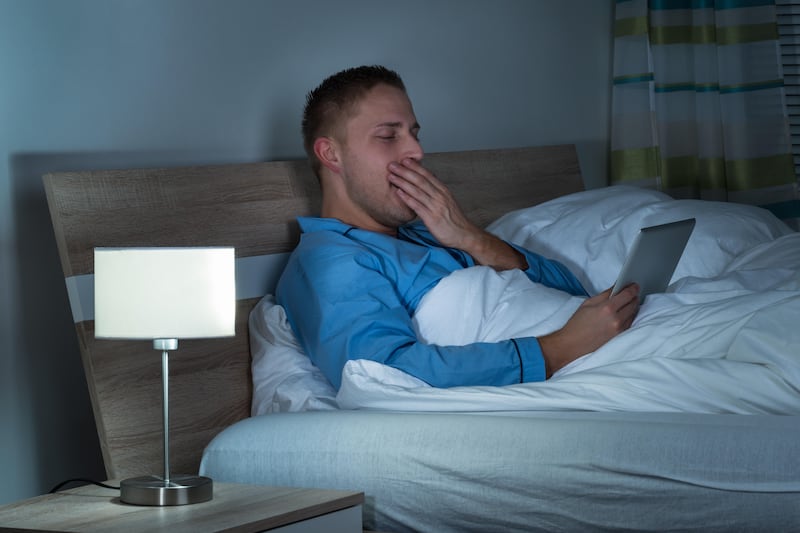Talent, training, dedication and diet are all part of the recipe for Olympic success. But there’s another absolutely crucial ingredient for a medal-winning performance – good sleep.
Recognising the role it plays for Team GB athletes, Greg Retter, its head of performance services, says: “Travelling, competing in different time zones and experiencing unfamiliar sleeping conditions can all have an impact on the amount of sleep athletes get at an Olympic Games. It’s always our aim to develop an environment that allows our athletes to perform at their best.”
And UK Sports Institute performance innovation consultant, Dr Luke Gupta, a sleep and circadian scientist, explains: “Sleep is a pillar of health, wellbeing and performance. So in terms of health, it is alongside, not below, diet and exercise. Sleep interacts with every day, every part of our life – it’s the foundation of wellbeing and health, and allows us to function on a day-to-day basis. It’s crucially important.”
Team GB weightlifter Emily Campbell, 29 – who won a silver medal at the 2020 Tokyo Olympics and is hoping for further medal success at Paris 2024 – agrees “sleep is absolutely paramount”.
Campbell continues: “Sleep is important when you’re walking around as a human, never mind as an athlete trying to perform at the top level. I definitely try and sleep as much as I can – and who doesn’t love sleeping? I really look forward to going to bed at night.”
But before she hits the sack, Campbell, who aims to have eight to nine hours’ sleep a night, as well as a nap that lasts from 30 minutes to an hour during the day, always follows a bedtime routine.
“It’s really simple,” she explains of her routine. “Coming upstairs and having a shower, doing my skincare, I get my bedtime snack, I get in bed, put my fairy-lights on and then just eat my little snack, watch a bit of TV and then I wind down and go to sleep.”
The snack is usually some form of protein and carbohydrate for slow digestion throughout the night. “So that could be a protein yoghurt, or some beef jerky,” Campbell says. “Sometimes I have half a tub of ice cream, or some biscuits or something along those lines for my carbs – a nice sweet snack before you go to bed is really good.”

But what if her bedtime routine is compromised for any reason – does it affect her training or performance?
“No, not massively,” she admits. “I always think part of being an athlete is about being adaptable, and sometimes you can’t do the same things. But it’s about being organised and trying to make it as similar as possible – and if it doesn’t happen [perfectly], it’s not the end of the world.”
The weightlifter, who trains every day apart from Sundays, also has her eye on a novel sleep aid for the Paris 2024 Games – sleep pods provided by Team GB’s Official Sleep Partner Dreams, at the team’s Performance Lodge, where athletes can train, eat, rest, recover and prepare for competition away from the busy Olympic Village.

The ‘Dreams Sleep Retreat’ will feature eight sleep pods in which athletes can nap, which can also support performance. A 2023 Spanish review of studies on the effect of daytime napping on sport performance found a 30-60 minute post-lunch nap has a beneficial effect on physical and cognitive performance, and reduces perceived fatigue.
Campbell, who has tried the sleep pods, adds: “There’s one where you can completely lie down and shut the lid and shut out the world, and then there’s what I’d call the napping one, which is more like an elevated chair. You can lie on them and there’s a little screen you can pull across while you sleep. I’ll definitely be booking those out when I’m in Paris – they’re very comfortable and they look really cool.”
And how does she rate her chances of another medal at the 2024 Games?
“You never know – weightlifting is one of those unpredictable sports, but training is going well, I’m enjoying it,” she says. “I’m looking forward to Paris, and I just hope I can get on the stage and be rewarded for the hard work I put in.”
So, what tips can non-athletes take from Team GB’s sleep habits?
Establish a bedtime routine
Gupta, who helps athletes work out their optimal sleep routines, says this is key for everyone – whether it’s dimming the lights at a certain time and relaxing, doing your skincare and taking a bath, etc.
“A routine provides cues to let our brains and bodies know that sleep is coming,” he explains. “It usually comes down to the things that allow you to wind down from the day. How people do that will be very individual, but essentially it gives them the opportunity in the evening to relax and engage in activities that allow them to do that. Routine is the guardian of good sleep.”
Stick to regular times

“Sleep works well when it’s regular,” Gupta explains. “Routine is important in terms of your approach to sleep, but also routine in terms of the time you wake up in the morning is arguably even more important. Waking up at the same time of day can regulate sleep in a way that allows it to occur in a pattern which is repeated day after day.”
If setting an exact time every day isn’t realistic, Gupta says a ‘sleep window’ – a period of time when you’re more likely to wake up – might be more appropriate.
Make sure you sleep for long enough
Eight hours a night is often touted as the optimal sleep goal. And while Gupta suggests seven to nine hours a each night is ideal, he says “maybe six is ok” if that’s not always achievable.
“Someone’s sleep need might change from one day to the next, and someone’s ability to achieve that need will be more challenged on some nights than others,” he says. “So the expectation that you’re going to get eight hours every single night is not helpful – sometimes you’ll get that, and sometimes you won’t, but being aware of that is key.”
Keep lie-ins to a minimum
Gupta says although a bit of a lie-in is fine sometimes, it’s important not to sleep too long in the morning, as it could have a knock-on effect later on. “It’s almost balancing the books a little, by having a bit of time to lie-in to allow you to catch up on lost sleep, but not overdoing it to the point whereby you’re taking away from some of that drive to sleep that you need later at night.”








